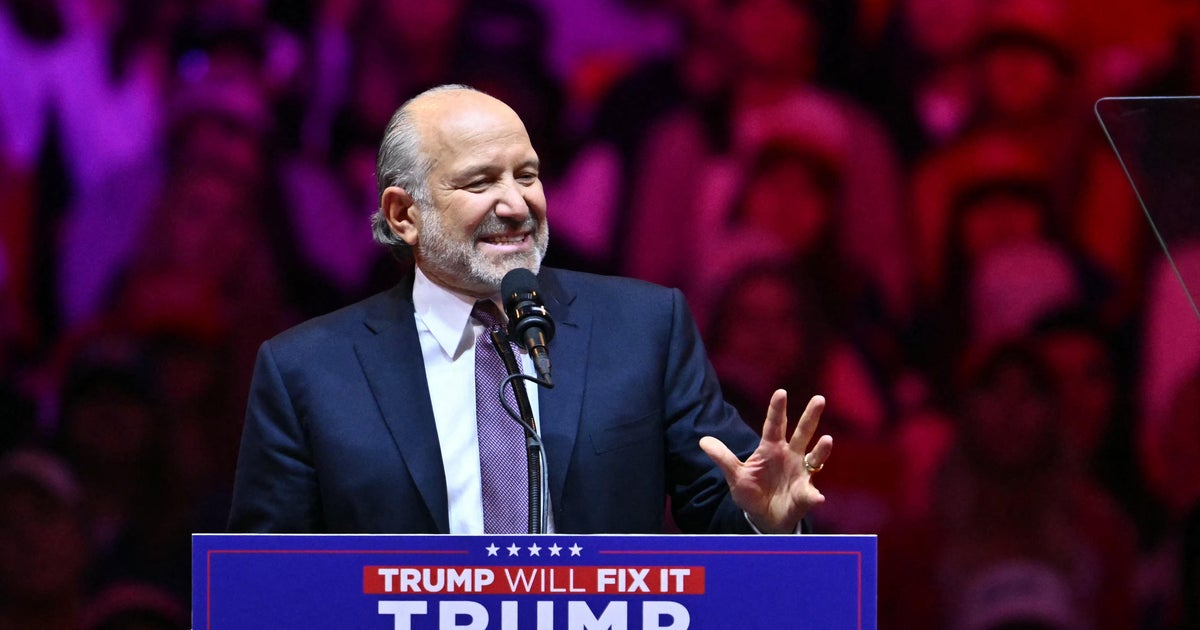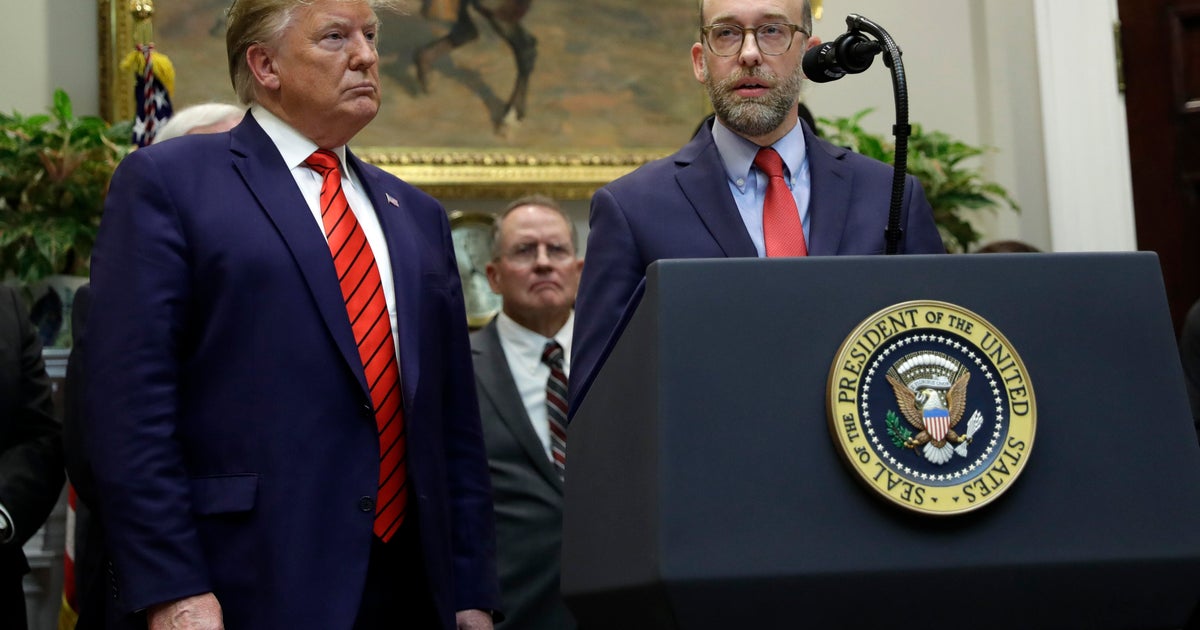"Julius Caesar": Any truth behind the controversy?
Every summer, New York's Public Theater puts on a free outdoor festival, called Shakespeare in the Park. And every summer, they capture the attention of theater critics around the New York metropolitan area with their daring staging and modern choices. This year, however, the Public Theater has garnered the attention of vocal critics across the country. And this time, those critics aren't members of the theater community at all.
This year, the Public Theater is putting on Shakespeare's classic tragedy, "Julius Caesar," and the creative team is fashioning the title character to look like President Trump.
"The protagonist has a very strong, not subtle likeness to Donald Trump," explains Priscilla Frank, an arts and culture reporter for HuffPost. "He tweets in a golden bathtub. He has blonde hair, wears a too-long red tie."
The ancient Roman leader also has a wife with a Melania Trump-esque Slavic accent, ensuring that the comparison is missed on no one.
And that likeness has made the classic scene in which Caesar is assassinated a highly controversial one -- with critics arguing that it essentially glorifies the assassination of the president. Donald Trump Jr. even took to Twitter on Wednesday insinuating that the shooting of GOP Majority Whip Rep. Steve Scalise and three others ahead of the Congressional Baseball Game was in some way connected to the production.
Shakespeare actors and scholars, however, insist that the protests are all based on a fundamental misunderstanding of the text.
"It has been said that it is shocking to see the person who is the current president being depicted as being violently assassinated. And, yeah, that's absolutely true," dramaturg Anika Chapin tells CBS News. "But that's also woven into the fiber of the play. It's kind of the point."
Robert Lee, a musical theater writer and a professor at New York University's Tisch School of the Arts, agrees.
"I think there's no question that it's meant to be horrifying," he says. "The interesting thing about Caesar is that, to my memory, they basically admit that he hasn't done anything. The reason that Caesar is being assassinated is because there's the fear that he may do something. The interesting thing about the whole controversy is that, when I look at 'Julius Caesar,' it's pretty much acknowledged that Julius Caesar is a great man."
The purpose of portraying Caesar as the current president of the United States, they say, is to make a 400-year-old text more accessible to a modern audience.
"Theatrical productions like to dress themselves up with current representations," explains Pearl Rhein, an actress in Broadway's "Natasha, Pierre & the Great Comet of 1812." "It helps the audience understand, 'Oh, that's the leader. He looks like my leader now. I get it. He's the leader, so I see the impact when something happens to him.'"
They also point out that, contrary to what some of the outraged public might currently believe, the assassination of Caesar is not the final act of the play. In fact, it's far from it.
"It's not what the play is about," says Chapin. "And it's also not the end of the play, which is something that people keep saying ... It's literally the middle of the play. It's the driving action for the rest of it. So, to think that this play would say, 'Yeah, go out and assassinate your leaders,' and then have half more play is just in itself indicative that that's not what the play is advocating."
In the second half of Shakespeare's "Julius Caesar," Brutus, Cassius and all the conspirators responsible for Caesar's death end up dead themselves. Brutus's beloved wife, Portia, even commits suicide.
"The play doesn't condone violence," explains Shakespeare actor Joe Wegner. "It actually is a story about what happens when an act like that is committed. And you watch these characters realize that. And then, in the end, everything falls."
So, how then does a controversy like this erupt, when the whole of Shakespeare's text seems to be arguing the very opposite of what its current detractors say?
"As a writer, what you're trying to do is really capture the complexity of the human experience," explains Lee. "And so, it becomes very frustrating as an artist when you run into these situations where the audience is fixating on one thing that you've written, or one scene, and choosing to judge a piece just on the basis of that one little snippet because the way that you dramatize the complexity of the world is by juxtaposing some things that make you quite uncomfortable with some things that maybe make you feel joy, some things that make you feel huge sorrow, some things that make you feel huge anger. The whole point as a dramatist is to juxtapose all of that."
In the social media-driven world in which we all live, however, that sort of context is often lost in translation. Minute-long video clips go viral, and passionate statements are made in 140 characters or less, and corporate sponsors pull their funding in response.
Now, Shakespeare actors and scholars are simply hoping that they can use the text to set the record straight before tensions flare any further.
"I just wish that any information that had gone out had just included the very bare facts," Rhein tells CBS News. "It's a play. It's a very old play. It's an anti-assassination play. Because I think it's just based on a really huge misunderstanding."







